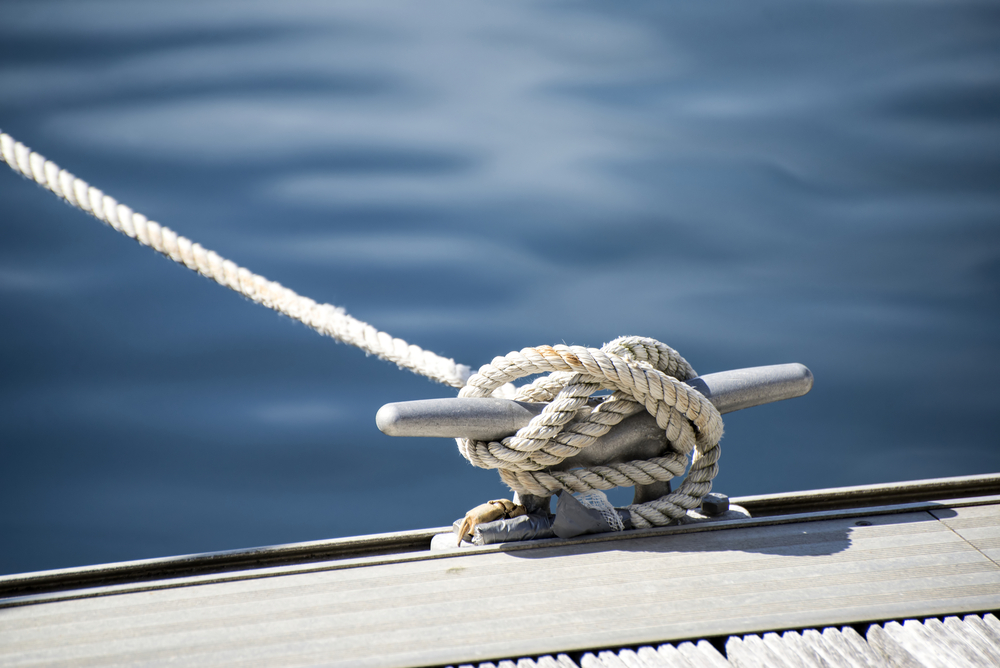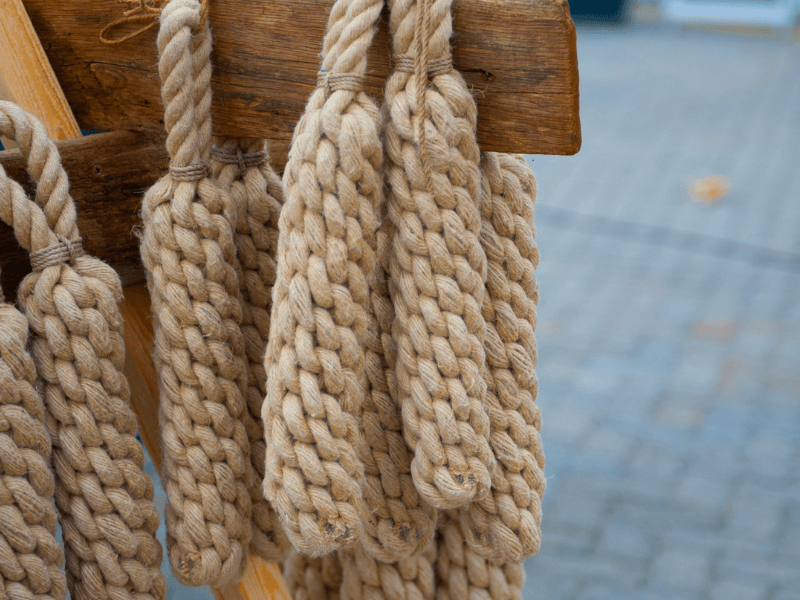Along any marina, or on any yacht or sailing boat, coils of rope can be seen around the edge of the boat’s hull and lining the edges of the moorings and docks. These are boat fenders, made with fender ropes, and they serve a vital function in protecting boats and marinas from damage.
What are Fender Ropes?
Fender ropes are ropes that are coiled or knotted in such a way as to produce a thick, protective bumper, which is attached to the outside of a boat or mooring to prevent damage from impacts, and protect both the boats and the moorings from unnecessary knocks.
Fender ropes must therefore be strong, thick and tough – and, most of all, they must be resistant to water and saltwater damage, as boat fenders may be exposed to water and seawater for many years.
What is a Boat Fender?
A boat fender is a sort of shield or bumper which is attached to the outside hull of a boat, normally along the edges. Modern fenders are sometimes made from rubber, plastic or even old tyres, but the most beautiful, most traditional and most effective boating fenders are made with coiled or woven rope. For thousands of years, coiled rope boat fenders were used to protect boats and ships from impact, and they are just as effective today!
The boat fender stops the boat from being damaged or causing damage to other boats and moorings during bumps and collisions, which are largely unavoidable during normal mooring and harbour activities. With boat fenders, the risk from these small impacts is completely negated, making it possible to safely moor a boat without worrying about the bobbing action of the water causing damage against the mooring over time.
Without a boat fender, you may soon wind up spending more than you bargained for on repairs – so a set of fenders is an investment that you aren’t likely to regret!
Why Does My Boat Need a Fender?
As explained above, a fender acts as a bumper and shock absorber, stopping damage caused by bumps and collisions. While collisions may seem infrequent, in yachting and boating even the act of mooring a boat can inflict thousands of small bumps and knocks over time, as the tide bumps the boat gently against the jetty. Proper boat fenders, like the coir rope fenders available from RopesDirect, help to make sure that these frequent, small knocks don’t cause damage over time, protecting your boat and any other boats that may accidentally knock into it!
What Sort of Ropes Make the Best Fender Ropes?
The ropes chosen for fender ropes need to be tough, long-lasting and resistant to water, and they should be able to resist the damaging effects of sun, wind and rain. The marina is a demanding environment, so the ropes used for boat fenders need to be up to the challenge – luckily, RopesDirect have got just the thing.
65mm Synthetic Hemp Rope
Waterproof, extremely resistant to UV damage and saltwater corrosion, and very tough, four-strand synthetic hemp rope is more than sturdy enough to protect your boat or marina from impacts and everyday bumps and scrapes. As it looks like natural hemp rope, it works beautifully with any aesthetic, and the rope core can be used to pull through a steel cable where additional strength and durability is required in your boat fenders. Due to the thickness and weight of this sturdy fender rope, the maximum continuous length available is 65m – which should be more than enough for even the most heavy-duty fenders!
Coir Rope
One of the most popular boat fender ropes throughout history, coir rope is made from coconut husk fibres, and has served sailors well for thousands of years. Coconut husks are especially resistant to seawater, as they evolved to float out to sea, and coir rope reflects this – waterproof, resistant to salt water damage, and lightweight, this supremely durable, long-lasting rope won’t saddle your boat with too much extra weight, and will stand up to any damage that might be inflicted by impacts, wear and tear, or the elements.
What’s more, the coir rope available from Ropes Direct for boat fenders is made with natural materials, so it is ecologically friendly and biodegradable.
Manila Rope
Another extremely popular sailing rope throughout history, much of the boating rope used during the great “Age of Sail” was Manila Rope. Woven in the Philippines – hence the name – manila rope is another waterproof, saltwater-resistant rope that offers excellent strength, durability and material quality.
As it shrinks when wet, a woven boat fender made from manila rope will become much more tightly coiled when wet, but it will not degrade when exposed to salt water or UV light, making it ideal for the harsh conditions of the open water or the marina.
Hemp Rope
Another strong, durable and aesthetically-pleasing fender rope, also made from natural fibres, hemp rope provides great value for money and can be used in many applications as a yachting rope or fender rope. In boating and marine use, hemp rope has the added advantage of floating on water – an extremely useful trait in a boating rope!
Jute Rope
Strong, tough, attractive and cheap, jute rope is another great choice for use as fender rope. Made with a strong polypropylene core sheathed in traditional jute rope, the jute fender ropes available from Ropes Direct won’t give up easily, and will provide a strong, durable fender for your boat or dock.

Do Fender Ropes Have Other Uses?
Boat fender ropes are, of course, well-suited to use when coiled or knotted into boat fenders. However, they have other uses as well – all of the fender ropes in this article are also used as barrier ropes, sail rigging, general purpose lashing, mooring ropes, and in non-marine applications as exercise ropes, fencing or bannister ropes, swing ropes and decking rope, among other uses, thanks to their strength, appearance, durability and soft feel.

